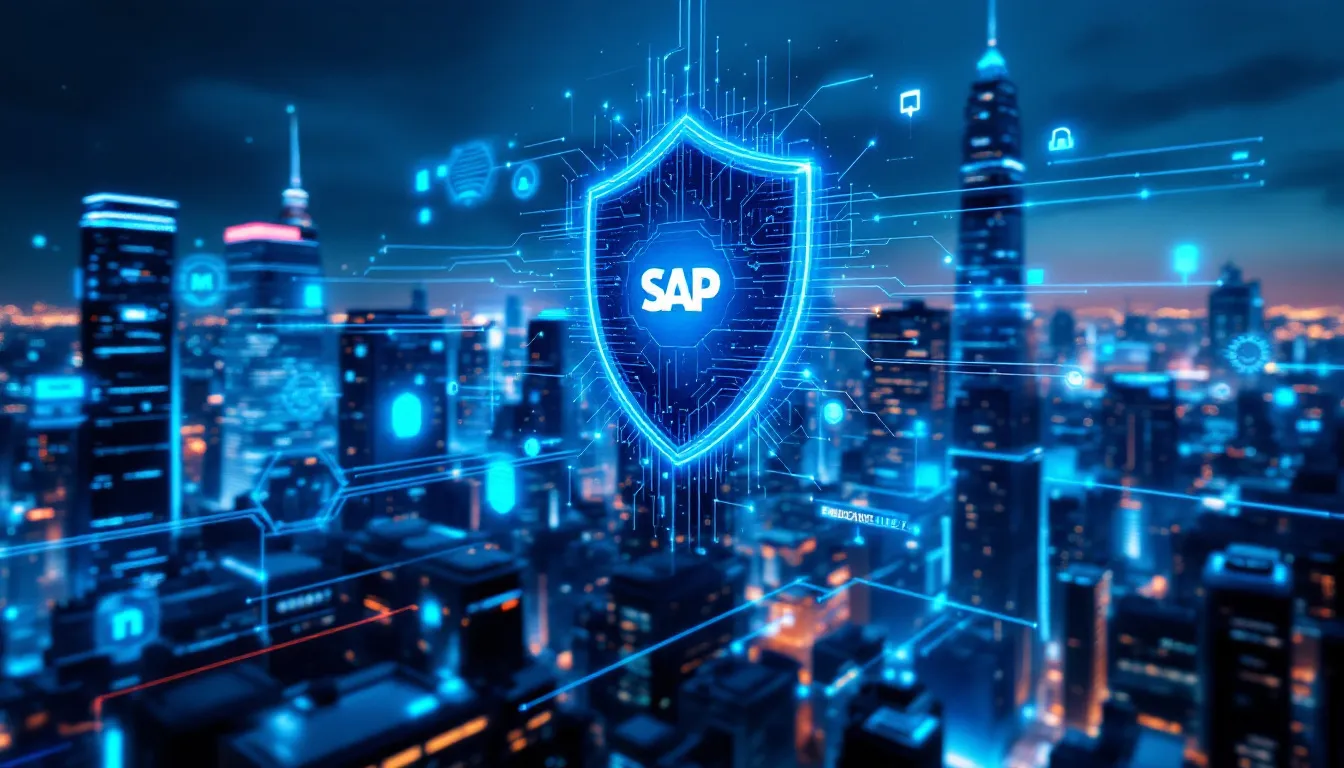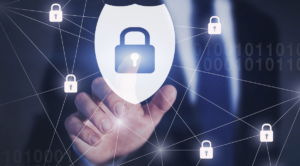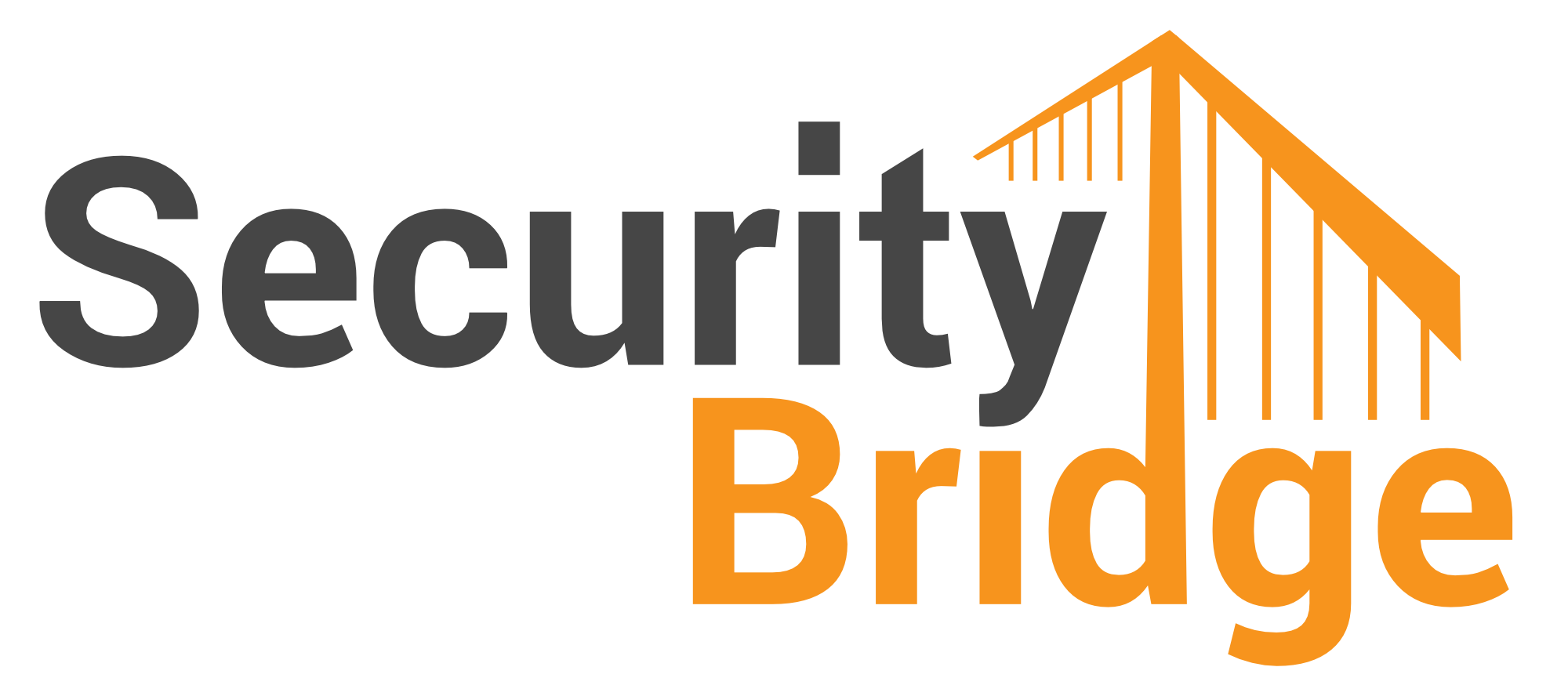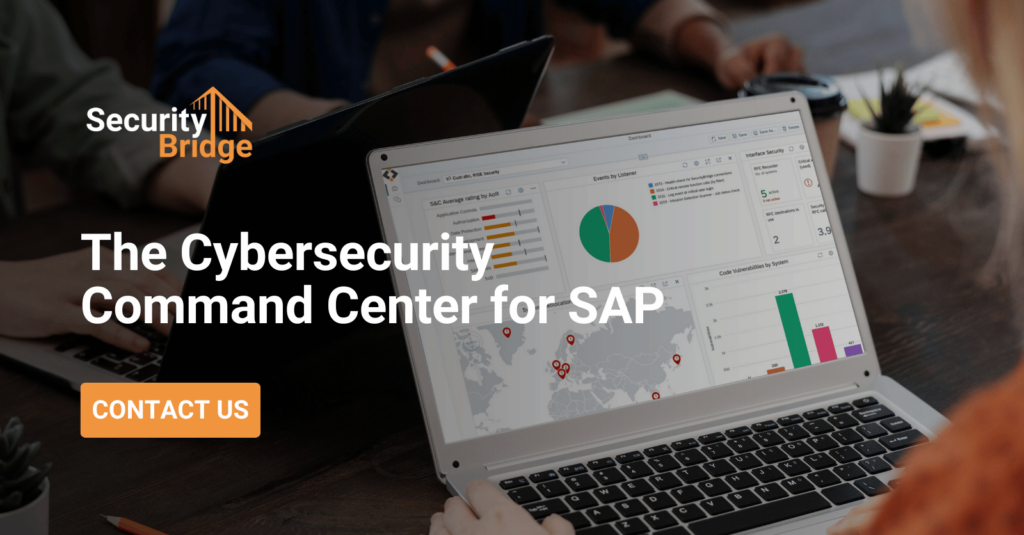
Understanding the SAP Security Future Scope as a venue for career growth
Chapters
Share Article
Let's Talk SAP Security
Have questions about SAP Security? We’re here to help. Contact Us
As the digital landscape evolves, the future of SAP security looks increasingly promising. SAP security professionals can expect expanded career opportunities and heightened demand for their expertise. Organizations prioritize SAP security to protect critical business data and business processes, driving the need for skilled consultants. In this article, we’ll delve into the future of SAP security, including career growth prospects, emerging trends, and necessary expertise.
Key Takeaways
SAP security expertise is increasingly vital for business continuity as organizations digitize operations and face growing cyber threats.
A rising demand for skilled SAP security experts, particularly in cloud technologies and compliance roles, offers stable and promising career growth.
Collaboration with Governance, Risk, and Compliance (SAP GRC) teams is essential for optimizing SAP security measures and maintaining operational reliability.
Understanding the SAP Security for Career Growth

The cybersecurity landscape is constantly evolving, increasing the importance of SAP security expertise. Securing SAP systems becomes vital for business continuity as companies digitize their operations. Consequently, SAP security consultants safeguard these systems and ensure data integrity. They design effective security roles that enhance governance, risk, and compliance capabilities.
SAP security consultants frequently work with Governance, Risk, and Compliance (GRC) teams to optimize security measures across various SAP platforms. This teamwork addresses the comprehensive requirements of SAP software and ensures seamless system integration with non-SAP applications and functions. Effective security roles directly impact the company’s operational reliability and overall security posture.
The demand for skilled SAP security expertise is increasing from consulting roles to in-house positions. As more companies recognize the importance of securing SAP systems, the need for experts will grow, offering a rewarding career path.
Introduction
SAP, short for Systems, Applications, and Products in Data Processing, is widely used enterprise software that supports various business operations, including finance, sales, and supply chain management. The centralized SAP system helps organizations manage their business process more efficiently and provides a robust infrastructure for business operations. As we look to the future, integrating advanced technologies like AI and machine learning will significantly enhance SAP security and threat detection.
This evolution of AI and machine learning presents exciting career progression opportunities for SAP security professionals. The future involves protecting systems and leveraging new technologies for more secure and efficient business environments. With the right training and skills, SAP security professionals can lead this transformation, helping organizations stay ahead of emerging threats and compliance requirements.
The Role of SAP System Security in Modern Enterprises

Securing SAP systems becomes critical for business process continuity as companies digitize their operations. The evolving threat landscape pushes businesses to prioritize this. SAP security consultants play a vital role in safeguarding these systems, ensuring data integrity, and protecting sensitive business information.
In modern enterprises, SAP security consultants collaborate with GRC teams to optimize security measures across various SAP platforms. Their ability to design effective security roles is crucial for enhancing governance, risk, and compliance capabilities. Consequently, there is an increasing need for SAP partners with system security and operational reliability expertise.
Trends Shaping the Future of SAP Security
The transition to SAP’s cloud solutions, such as BTP and RISE, significantly impacts the approach to securing SAP systems. As businesses move their environments to the cloud, new security protocols are needed to address unique challenges. The rising incidence of cyber threats requires a focus on preventative measures to protect sensitive data. Just because SAP now hosts your environment doesn’t mean you are not responsible for its security.
Automation in SAP application management is expected to enhance efficiency and reduce errors. Integrating AI into SAP systems should yield significant efficiency improvements and cost savings. These advancements will be crucial in safeguarding SAP environments, making them more resilient to potential threats.
As reliance on cloud applications grows, security will play an increasingly vital role in protecting sensitive data from data breaches. Focusing on data protection is essential for maintaining the integrity and security of ERP (enterprise resource planning) systems. Staying ahead of these trends ensures that businesses are well-prepared to face future challenges.
Increasing Demand for Skilled SAP Security Professionals

The demand for SAP security experts is rising due to a shortage of qualified experts. By 2025, roles related to SAP security, particularly those focusing on cloud technologies and data compliance, are expected to be prominent. This indicates a reliant career outlook for people who keep SAP environments secured.
The global demand for SAP experts is projected to increase steadily, offering many consulting and employment opportunities. As demand consistently exceeds supply, those with SAP knowledge and security certifications will be in a favorable position. These globally recognized certifications are vital for career advancement in security roles.
Ongoing education and professional development are crucial for security experts to keep pace with evolving industry standards. Online platforms like openSAP offer free courses on various SAP topics, making training accessible to a broader audience. Continuously enhancing qualifications ensures that SAP security experts remain competitive in the job market.
The Critical Responsibilities of Future SAP Security Roles
The future of SAP security roles is closely tied to the growth of Governance, Risk, and Compliance (GRC) modules, particularly in access controls and risk management. SAP security experts must have a deep understanding of security and GRC to meet the comprehensive requirements of SAP systems.
Their roles will protect sensitive business data and ensure operational continuity.
Advanced Access Management
Identity and Access Management (IAM) and vulnerability management are critical in the cybersecurity context of SAP administration. These activities ensure that only authorized users access the system, protecting sensitive information. Effective governance, access management, data privacy, authentication, and application security are essential for securely configuring an SAP system.
A common misconception is that SAP systems are secure by default, underscoring the need for proactive governance. Implementing SAP S/4HANA requires specific considerations regarding its connected solutions to ensure a secure environment. Keeping the core SAP system clean and compliant is a primary responsibility of SAP administrators.
Enhanced Risk Management
SAP administrators provide domain expertise to identify threats within ERP (enterprise resource planning) systems. They play a crucial role in threat detection, helping secure the systems from vulnerabilities. By identifying and mitigating risks, SAP security experts maintain the integrity and security of SAP ERP systems.
Enhanced risk management ensures that ERP systems remain secure and resilient to potential threats. Skilled security experts are indispensable for maintaining the organization’s overall security posture.
Data Privacy and Compliance
Security configurations for SAP cloud services provide crucial guidance for customer-managed components. Regulatory compliance is critical in securing SAP systems, ensuring businesses adhere to legal and industry-specific requirements. Protecting sensitive data from breaches is vital, as data loss can lead to severe financial and reputational damage.
To adapt to evolving regulatory standards and compliance requirements, businesses must continually update their security practices. Staying compliant and protecting data helps businesses avoid costly penalties and maintain trust with stakeholders.
Specializations Within SAP Security
Application security focuses on protecting enterprise software from threats by implementing security measures during development. Professionals in this field need expertise in secure coding practices and knowledge of common vulnerabilities, such as SQL injection.
Communications security ensures that data transmitted over networks is secure, utilizing encryption and secure protocols to protect information integrity. Expertise in network protocols and familiarity with firewalls are essential for this specialization.
System integration security involves safeguarding the connections and interactions between different systems and applications and addressing vulnerabilities that may arise during integration. Experts should have a strong understanding of various APIs, data flows, and potential security risks.
Training and Certification Pathways
Training and certification are essential for success in SAP security roles as they provide expertise and knowledge. Certifications validate skills and knowledge in SAP, enhancing employability in the job market. Ongoing education is crucial to maintain a competitive edge in the ever-evolving SAP landscape.
SAP offers diverse certifications, ranging from foundational to advanced levels and encompassing various modules and specialties. Continuous skill development through SAP training courses is essential for staying competitive in the evolving landscape of SAP security. Gaining hands-on experience through internships or projects helps apply knowledge in practical settings.
Obtaining a relevant SAP certification can significantly enhance employability and demonstrate expertise to potential employers.
Collaboration With Other IT Functions
SAP security consultants are integral in ensuring holistic security strategies through their work with governance, risk management, and compliance (SAP GRC). The importance of GRC has increased due to rising cybersecurity and data privacy regulations, trade regulations and sanctions. SAP security consultants closely collaborate with various business functions to assess system security and provide solutions for application layer weaknesses, bridging the gap between GRC and security management.
SAP security consultants promote security awareness within the organization, emphasizing that security is a shared responsibility. Fostering collaboration and awareness ensures that all stakeholders are committed to maintaining a secure environment.
Future Challenges in SAP Security

Organizations face increased complexity as they use a variety of applications alongside core SAP systems. The move to the cloud, faster application development, and broader technology distribution contribute significantly to SAP systems security challenges. SAP security consultants are experiencing an increasing volume of work and expanding complexity of challenges.
On-premise ERP teams face challenges. The complex landscapes they deal with impact their SAP security capabilities. Ensuring custom code security will continue to be required as organizations adapt their SAP environments to new needs. Adapting to the continuous business integration of new technologies into existing SAP systems will present ongoing security challenges for professionals in the field.
Opportunities for Remote Work and Global Careers
SAP security professionals can leverage remote work opportunities to enhance their work-life balance and job satisfaction. The rise of cloud-based solutions in SAP allows for increased remote collaboration among security teams worldwide. With SAP’s global presence, security professionals can work in diverse international markets, gaining valuable experience and exposure to different business environments.
Remote work, international assignments, and cross-border collaboration offer valuable opportunities for SAP professionals to build a fulfilling career. Embracing these opportunities allows SAP security professionals to broaden their horizons and gain a competitive edge in the job market.
Preparing for the Future: Actionable Steps
Networking is crucial; engaging with industry professionals can open new career opportunities. Participating in SAP community groups and events can lead to new job opportunities and valuable connections. Leveraging resources such as web seminars and online courses helps individuals enhance their knowledge and expertise in SAP security.
Participating in SAP instructor-led training at a training institute provides hands-on experience and direct access to expert guidance. Clarifying your specific area of SAP specialization is vital for career success, as it helps align your skills with market needs. Practicing problem-solving scenarios can better prepare you for interviews, as employers often assess your ability to handle real-world challenges.
Tailoring your resume and LinkedIn profile to highlight your SAP skills and achievements can improve your chances of standing out to employers. By taking these actionable steps, you can ensure that you are well-prepared for a successful career in SAP security.
Summary
In summary, the future of SAP security is bright, with numerous career opportunities and advancements. Skilled SAP security experts will continue to be in high demand as organizations prioritize the security of their systems and data. By staying informed about the latest trends, continuously developing your skills, and embracing new opportunities, you can ensure a successful and rewarding career in SAP security.
Frequently Asked Questions
What is SAP systems, and why is it essential for business operations?
SAP, or Systems, Applications, and Products in Data Processing, is crucial for business operations as it streamlines processes across finance, sales, and supply chain management, enhancing organizational efficiency and decision-making.
Why is there an increasing demand for skilled SAP security experts?
The increasing demand for skilled SAP security experts is primarily driven by a shortage of qualified experts and the heightened importance of securing SAP systems as organizations embrace digital transformation and cloud solutions.
What are the key responsibilities of SAP security professionals?
SAP security professionals are primarily responsible for advanced access management, risk management, data privacy, and regulatory compliance. Their roles are crucial in safeguarding sensitive business data and maintaining operational continuity.
What training and certifications are necessary for a career in SAP security?
To pursue a career in SAP security, obtaining relevant SAP certifications is essential, alongside continual training and hands-on experience, to maintain competitiveness in the field. This foundational knowledge will enhance your skills and credibility in SAP security roles.
What are the future challenges in SAP security?
Future challenges in SAP security will revolve around managing application complexity, adapting to cloud migrations, accelerating application development, and safeguarding custom code security as organizations embrace new technologies. Addressing these issues is essential for maintaining robust security in evolving environments.

